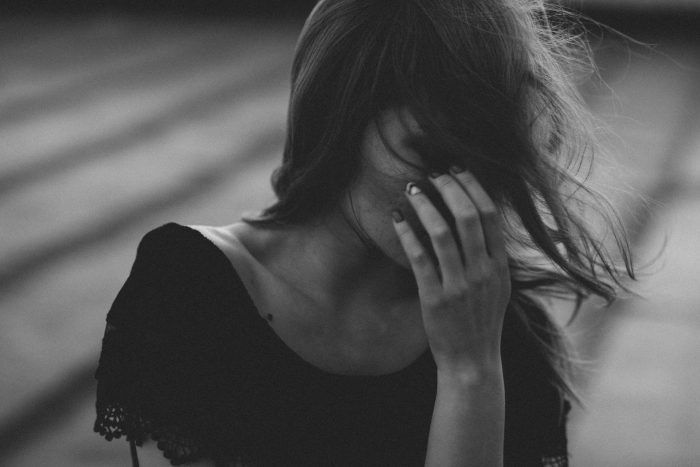Nobody really talks openly about death and grief.
At least, that’s my experience from the culture I was raised in—and in today’s social-media-addicted world, it seems that many people hold off on acknowledging any “negative” life experiences at all.
In American culture, we see death as an anomaly, as a medical “failure,” and as something to be feared. This fear brings about shame and guilt and we hide death in nursing homes, veterinary offices, and hospitals—places that are separate from everyday life.
I wonder, sometimes, if we are somehow unconsciously punishing old people for aging and dying by placing them in homes where they are usually, at best, bored and depressed, and at worst, abused and mistreated. Perhaps this is only a reflection of our own collective fear of death.
But the truth is that death is an integral, and even beautiful, part of life. It’s a process that is as beautiful as birth.
Being with my cat, Pansy, through the death process was one of the most amazing and profound experiences I have had. Seeing how there was a divine intelligence in how her body shut down, sharing songs and poems and gratitude with her in her final days, and finally, giving her the space to let go—these are gifts I will carry with me for the rest of my life.
And yet, we are so often robbed of experiencing the poetry of death and the lessons of grief.
We are lucky to live in a world where we have access to such amazing advances in medical care—but those same advances seem to make it more difficult to accept the inevitability, and naturalness, of death.
Instead of the body shutting down or letting go, organs are “failing.” Instead of our souls disconnecting from this physical realm and connection with spirit, we say people have Alzheimer’s and dementia. The language we use matters, and perhaps we can realize that the process of death—and the body and mind letting go—are not anomalies. They are a natural and elegant dance each of us will experience.
I wonder what we are missing out on when we send loved ones to die in nursing homes and hospitals and the vet, when we want death to be easy, quick, and painless. That is, of course, understandable, but it’s problematic when we think the only way to do this is via drugs or euthanasia.
Instead of relying on the wisdom of the body, we place our confidence in drugs and medicine—and that can be the right decision in many cases, but not in all.
I knew my cat wanted to die naturally—and consciously. And although the vets said it would probably be painful and traumatic, her death was sweet and peaceful—and natural. It was a process that took several days, but I respected her to know she would leave when she wanted to. Dying at home, surrounded by love and comfort, instead of on a vet’s steel table, was what she wanted, and I am grateful we both got to experience that.
A society that does not allow a full expression of death and grief slowly drains itself of life. In death, we help our loved ones let go of their physical forms and return to spirit. With grief, we allow ourselves to feel the fullness of the love and experiences we shared with loved ones. We deepen our understanding of what love is and of our connection to others.
It is my theory that we, in our modern world, carry multitudes of repressed or unacknowledged grief. We are given no space to grieve—there are no real containers for it in the modern world. We are expected to keep working, continue consuming, and gloss over the many tiny sadnesses we collect over a lifetime. From childhood trauma, to Earth’s pain, to the sadness of animals we eat, to the pain of children working in factories to make our iPhones, there is so much pain in the world we don’t acknowledge.
Perhaps it’s no wonder that COVID-19 affects the lungs, the place (according to Chinese medicine) where grief is stored. Perhaps this pandemic is the symptom we’re experiencing from a world drowning in grief, and we don’t even know it.
It’s likely that we would treat the world—and one another—differently if we acknowledged our grief.
We can hold space to grieve even small things—the closing of a favorite store, the death of one of our plants, or the ending of a friendship—and in doing so, honor what those things meant to us. And in honoring that, we can honor our humanity.
But instead, we go on, mindlessly, as if nothing ever touches us. It can even be seen as a good thing to not let things “get to us”—to be unaffected, unflappable. We might use drugs, or sex, or work to numb our pain. But in the end, we are left with our grief and the world’s grief. And we aren’t even “supposed” to feel it in the first place.
Until we honor death and grief as integral parts of life, it’s my belief that the violence of our culture and the dissolution of our society will continue to bring these things to the forefront. Shootings, violence, and pandemics can force us to acknowledge the realities of grief and death that we seem so keen on repressing.
In the not-so-distant future, it’s my hope that we will be able to accept the depth of our grief and the inevitability of our deaths. And through the acceptance of these difficult realities, we will finally be able to let go of the denial and violence our culture has been consumed with for so long.
And maybe we will learn the most sacred lesson death has to teach us: every ending is also a new beginning.
~


 Share on bsky
Share on bsky





Read 3 comments and reply